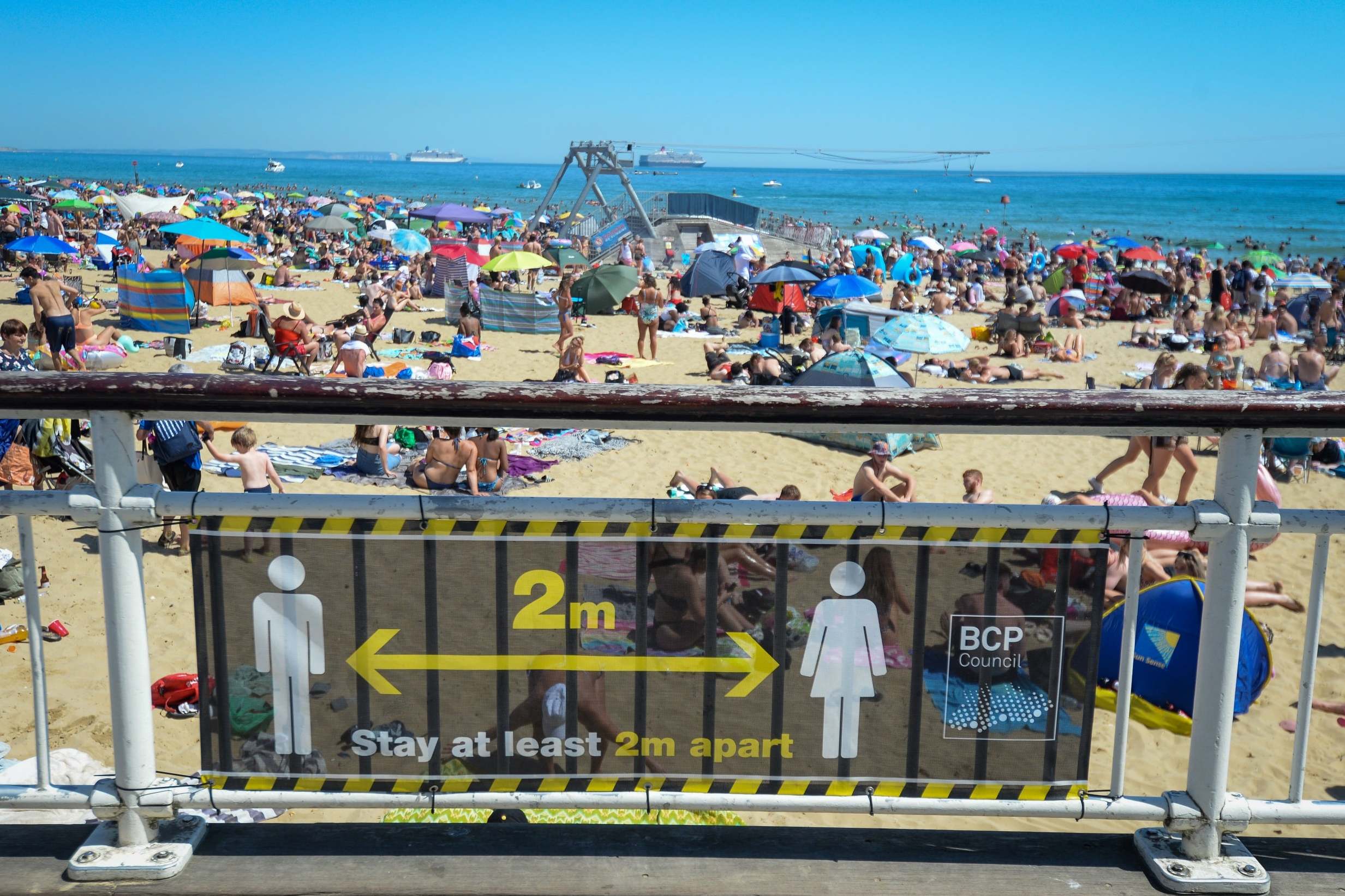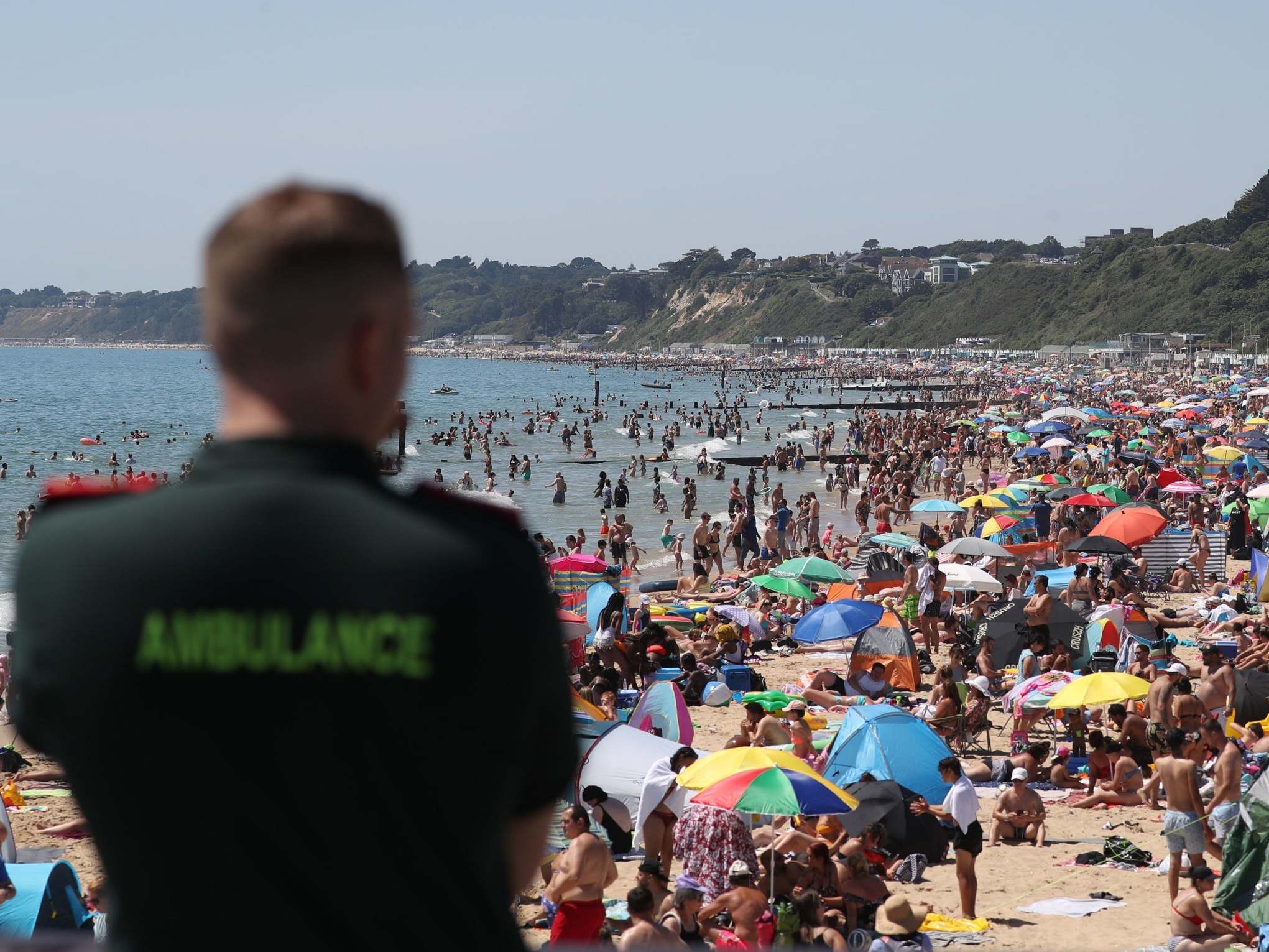Why Boris Johnson’s failings will make managing a second coronavirus wave far more tricky
The litany of government blunders over the course of the pandemic has sapped its moral authority. If this week has shown one thing, Sean O'Grady concludes, it’s that the public isn’t listening anymore


What to make of the various congregations of people – contrary to all official guidance – in Brixton, in Liverpool or on the beach in Bournemouth? Or of the widespread protests in recent weeks, all technically illegal?
Before even some of the lockdown relaxation was supposed to come into force, large sections of the British public seem to have decided that the war against coronavirus is, for them, joyously over. Media headlines about “Independence Day” on 4 July and pints in the sunshine haven’t helped a measured movement towards normality.
The authorities are disturbed. The health and social care secretary, Matt Hancock, had threatened to close down beaches, while Bournemouth council declared an emergency (which allows the police to intervene). The chief medical officer says Covid cases will rise if people aren’t careful. There is talk of reimposing lockdown measures if the number of fatalities starts to tick upwards. Of course, given the usual three-week lag between infection and fatality, waiting for such an outcome would leave it too late. But abandoning the relaxation of lockdown almost before it has begun has begun is embarrassing. We may in other words already be repeating the misjudgements made in March, when lockdown arrived too late and according to Professor Neil Ferguson of Imperial College, tens of thousands of lives were lost needlessly. The coronavirus certainly moves more quickly on its exponential growth path than Whitehall does trying to control it. The problem now is that if a second partial or local lockdown was to be ordered, fewer people would obey it.
It seems a long time since 23 March, when Boris Johnson sat behind a desk in Downing Street and told the nation to stay at home to protect the NHS and save lives. Some 27 million watched the broadcast, and, whatever people’s politics, they overwhelmingly stuck to the guidance. Compliance was higher than expected. The messaging was clear and unequivocal. It was our self-interest as well as that of the wider community. It worked. Covid-19 did not overwhelm the NHS.

Britain is not so well placed for the second wave. The Dominic Cummings affair has sapped the government’s moral authority, as have some high profile failures, most recently on test and tracing and the app. Having won much genuine sympathy with his own serious illness from Covid-19, the prime minister has squandered a good deal of that goodwill.
The explosion of feeling in the Black Lives Matter protests caught ministers by surprise, and their response failed to meet the mood of the moment. It meant, as we have seen in recent days, that the police are finding their work more difficult. They will find patrolling any new lockdown far more difficult; and effective policing requires widespread consent.
The tangle of different regulations across the four home nations of the UK has confused the messaging. Being asked to “stay alert” and apply common sense is hardly specific enough. As Johnson insists, gradually coming out of lockdown was always going to be more difficult than going in. Yet the effort now on clear communications seems weaker than it did in the weeks of “Stay at Home”. The daily Downing Street media briefings might have been a useful way to answer questions and offer clarity and reassurance. Instead they became another indication to the public that the worst is over. It may not be. In such circumstances, all political bets will be off.
Join our commenting forum
Join thought-provoking conversations, follow other Independent readers and see their replies
Comments